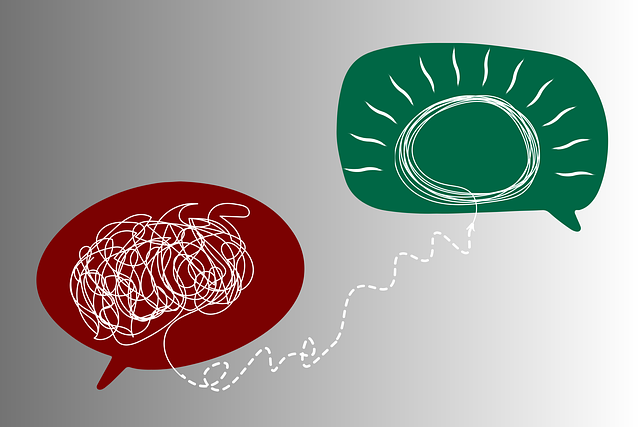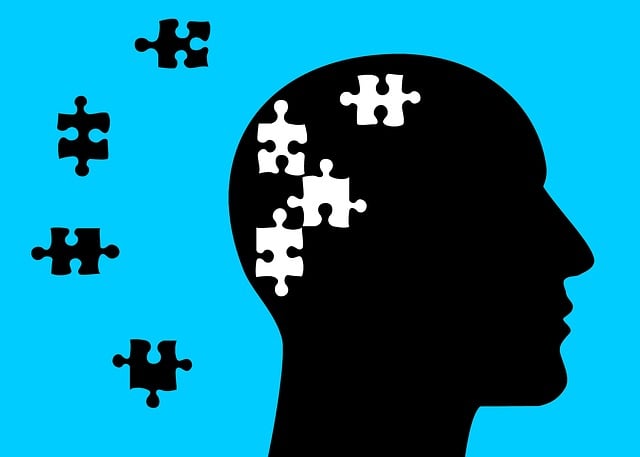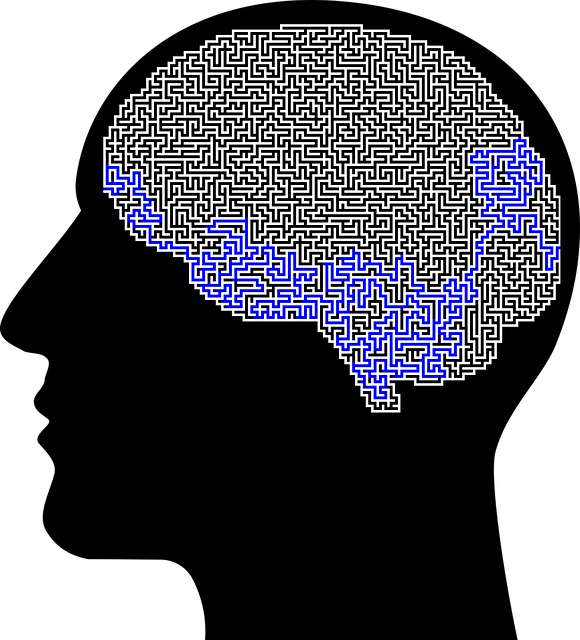Mindfulness meditation, an effective therapy for children in German-speaking regions, teaches kids to observe thoughts and emotions without judgment, fostering calmness and focus in challenging situations. This practice reduces stress, anxiety, and emotional regulation issues, while promoting self-awareness and a sense of belonging. In therapy contexts, creating safe environments encourages children to explore their thoughts freely through age-appropriate practices like compassion cultivation and anxiety relief techniques. Integrating mindfulness into daily routines enhances mental wellness, with simple tools like silent breath awareness and non-judgmental activities holding great potential for improving well-being. Overcoming challenges through tailored guidance, storytelling, and music ensures consistent practice, fostering emotional healing processes and deeper connections with oneself. Mental wellness journaling exercises further support this journey.
“Unleash the power of mindfulness meditation for children with our comprehensive guide. Discover how this ancient practice can benefit young minds in a German-speaking context, offering a safe haven for emotional well-being. Learn to create an inclusive environment and integrate mindfulness into daily routines seamlessly. Overcome challenges and inspire consistency with practical tips tailored for parents and educators. Empower children with the tools to manage stress and enhance their mental health through this effective therapy.”
- Understanding Mindfulness Meditation for Children
- Benefits of Practicing Mindfulness in a German-Speaking Context
- Creating a Safe and Supportive Environment for Young Minds
- Practical Tips for Integrating Mindfulness into Daily Routines
- Overcoming Challenges and Encouraging Consistency
Understanding Mindfulness Meditation for Children

Mindfulness meditation has gained recognition as a valuable tool for promoting mental wellness in children. For German-speaking families, understanding this practice can be an essential step towards supporting their child’s emotional and psychological development. Unlike traditional therapy, mindfulness meditation is not about fixing problems but rather teaching kids to observe their thoughts and emotions without judgment. This simple yet powerful skill can help them navigate challenging situations with increased calmness and focus.
When introduced through compassionate cultivation practices tailored for children, mindfulness becomes a fun and accessible activity. German-speaking healthcare providers often emphasize the importance of cultural competency training when incorporating such practices into therapy sessions. By doing so, they ensure that kids from diverse backgrounds feel comfortable and understood during their mental wellness podcast series production or meditation practice. This inclusive approach allows every child to benefit from mindfulness’s therapeutic effects, fostering a sense of belonging and self-awareness.
Benefits of Practicing Mindfulness in a German-Speaking Context

In der deutschen Sprache und Kultur gewinnt die Achtsamkeitsmeditation zunehmend an Bedeutung, nicht nur im Erwachsenenbereich, sondern auch in der Therapie für Kinder. Die Vorteile dieser Praxis sind vielfältig und haben einen positiven Einfluss auf das allgemeine Wohlbefinden. In einem deutschsprachigen Kontext kann Achtsamkeit helfen, Stress und Angst bei Kindern zu reduzieren, ihre emotionale Regulation zu verbessern und ein größeres Bewusstsein für den gegenwärtigen Moment zu fördern. Dies ist besonders relevant im Hinblick auf die Entwicklung von Resilienz und das Verständnis von Selbstmitgefühl, was in der modernen Gesellschaft von zunehmender Bedeutung ist.
Achtsamkeitsmeditationen können auch als Teil von Burnout-Preventionsstrategien für Gesundheitsdienstleister eingesetzt werden, da sie ein Bewusstsein für die eigenen Gedanken und Gefühle schaffen und so zu mehr Achtsamkeit im Berufsalltag beitragen. Diese Praktiken fördern nicht nur die Gesundheit der Kinder, sondern tragen auch zur Public Awareness Campaigns und Compassion Cultivation Practices bei, indem sie ein tiefes Verständnis für die Bedeutung von Achtsamkeit in verschiedenen Lebensbereichen vermitteln.
Creating a Safe and Supportive Environment for Young Minds

Creating a safe and supportive environment is paramount when introducing mindfulness meditation to young minds. This is especially crucial in therapy for children, particularly those speaking German as their first language. A nurturing atmosphere allows children to explore their thoughts and emotions freely, fostering trust and encouraging active participation. Mental health professionals play a vital role in cultivating this space by ensuring the practice is age-appropriate and engaging for kids.
By incorporating compassion cultivation practices and anxiety relief techniques into mindfulness meditation, young individuals can develop essential coping skills while learning to navigate their feelings. This approach not only enhances their emotional intelligence but also serves as an effective risk management planning strategy for mental health professionals working with this demographic.
Practical Tips for Integrating Mindfulness into Daily Routines

Integrating mindfulness into your daily routine can be a transformative practice, offering a calm amidst the chaos of modern life. Start with small, manageable steps to cultivate a consistent mindfulness habit. For instance, dedicate just 5-10 minutes each morning or evening to silent sitting, focusing on your breath. This simple act can anchor you in the present moment and set a peaceful tone for the day ahead.
Consider incorporating mindfulness into existing activities like walking, eating, or even household chores. The key is to bring your full awareness to the task at hand without judgment. For parents, teaching children these practices can be highly beneficial. A mental wellness podcast series production featuring mindfulness exercises tailored for kids can offer engaging and practical burnout prevention strategies for healthcare providers, promoting mental relaxation and resilience from a young age. These simple yet powerful tools have the potential to create a lasting impact on both mind over matter principles and overall well-being, especially within German-speaking communities seeking therapy for children.
Overcoming Challenges and Encouraging Consistency

Overcoming challenges is an integral part of establishing a consistent mindfulness meditation practice, especially for children learning this valuable skill. Many young minds might struggle with focus or find it hard to sit still during meditation sessions. Here, therapists can offer tailored guidance using techniques adapted from therapy for children in German-speaking regions. By employing creative approaches, such as incorporating storytelling or music, meditation becomes an engaging activity that captures their interest and encourages participation.
Consistency is key when fostering emotional healing processes through mindfulness. A structured routine helps children develop a deeper connection with their inner selves. Mental wellness journaling exercises, for instance, can be introduced as a supplementary practice to support their journey. This simple yet powerful tool allows them to reflect on their experiences, track progress, and express emotions in a safe and private manner. Such practices align with broader efforts in mental health policy analysis and advocacy, aiming to integrate holistic wellness strategies into children’s lives.
Mindfulness meditation, when introduced with care, can serve as a powerful therapy for children in a German-speaking context. By creating safe and supportive environments and integrating practical tips into daily routines, parents and educators can foster consistent mindfulness practices. Overcoming challenges together and recognizing the numerous benefits, from improved focus to enhanced emotional well-being, makes mindfulness a valuable tool for nurturing young minds. This holistic approach not only supports children’s mental health but also equips them with skills to navigate life’s complexities.













